Farming is the Future
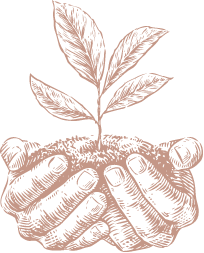
Here in North Carolina, the land is our legacy. It has sustained our families for generations. It’s also our future, and if managed well, it’s a bright one.
The Juneberry Education Foundation (JEF) was created with that future in mind: by cultivating a regenerative path for farming locally, we ensure that both the land, and those who work it, have the opportunity to thrive.
Our Mission
We seek to inspire current and future farmers to reimagine the agricultural landscape in North Carolina through the study, research, and real-world application of regenerative farming.
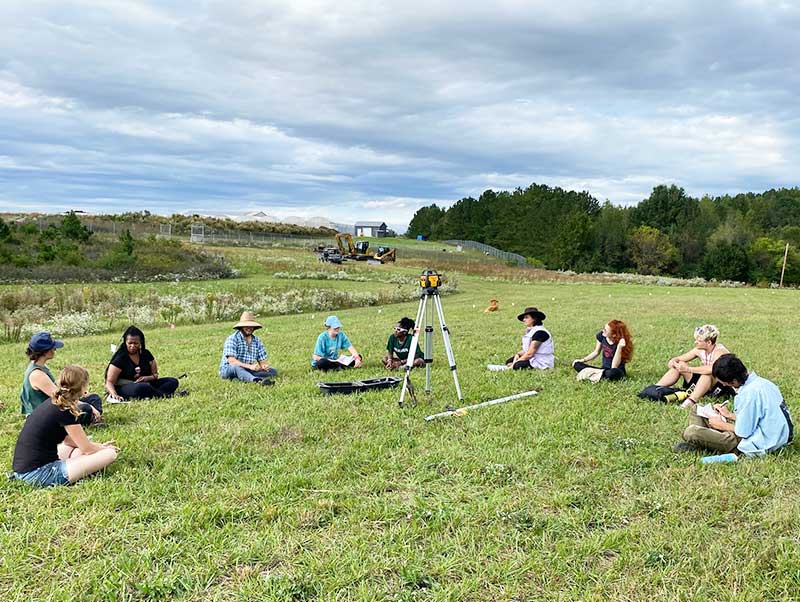


Beyond Sustainable: Regenerative
We believe farming methods must evolve to consider the whole context of growing food by healthy means. Sustainability practices do not go far enough. Regenerative agriculture focuses on improving soil health and biodiversity so that farmers can feed their communities while also revitalizing entire ecosystems.
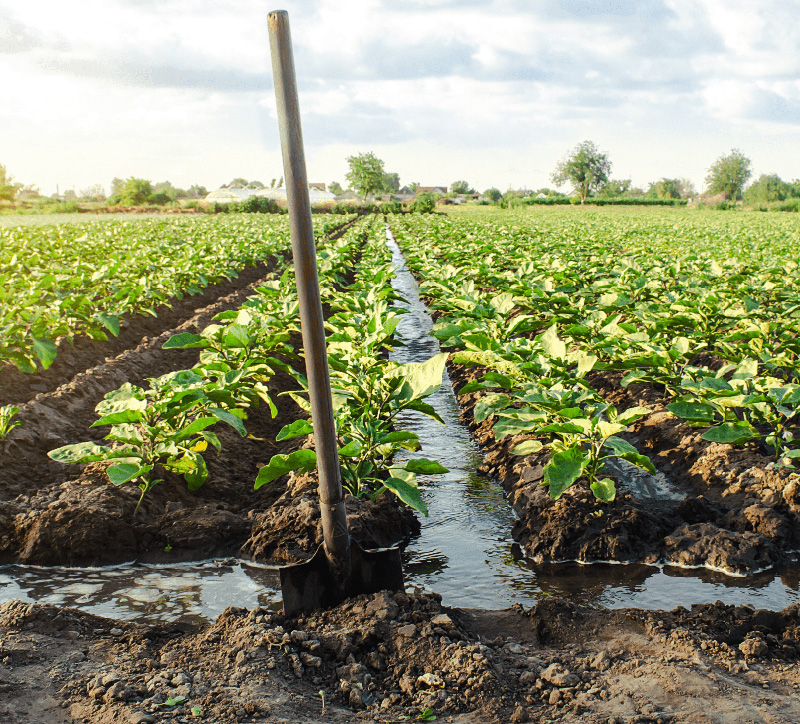
Agriculture at a crossroads.
Small farms are one of our state’s most precious resources, but like the soil itself, they have been depleted. From 2001 to 2016, more than 731,000 acres of our agricultural land were lost to non-agricultural development, 1 and in the last four of those years alone, we lost 2,200 local farms. 2 Yet a difficult reality should only strengthen our resolve; when we reinvigorate the land and increase the value of the food we sell, we forge a new path for farming.
What it means to be regenerative.
Regenerative agriculture works to increase the organic matter in our soil. This has a big impact on water retention. Researchers estimate that a 1% increase in organic matter per acre helps the soil retain an additional 40,000 gallons of water. 3 Regenerative practices are closely related to polyculture and permaculture methods. Their focus is to mimic natural ecosystems by growing multiple species of plants and grazing many types of livestock on them. In other words, we take our cues from nature at its best.
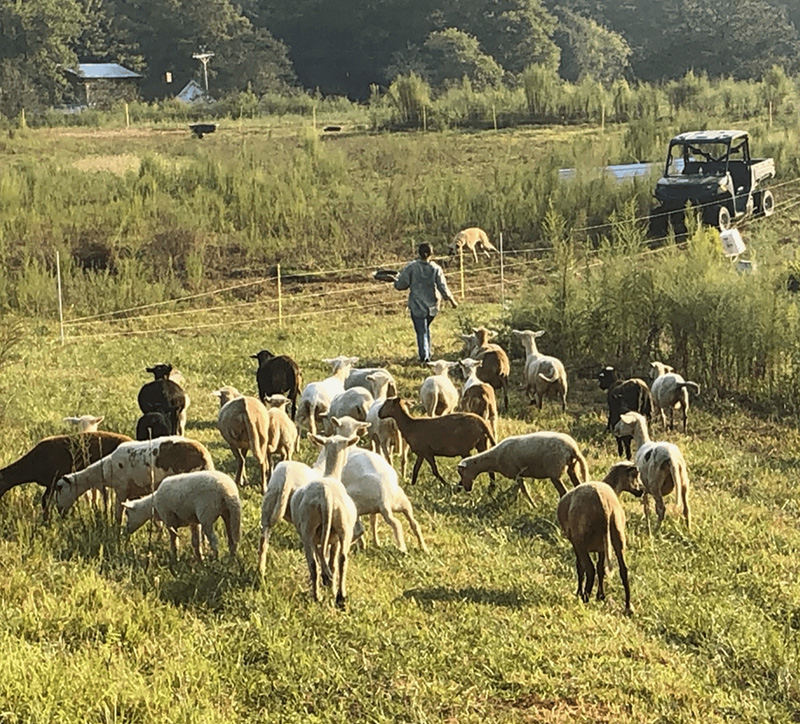
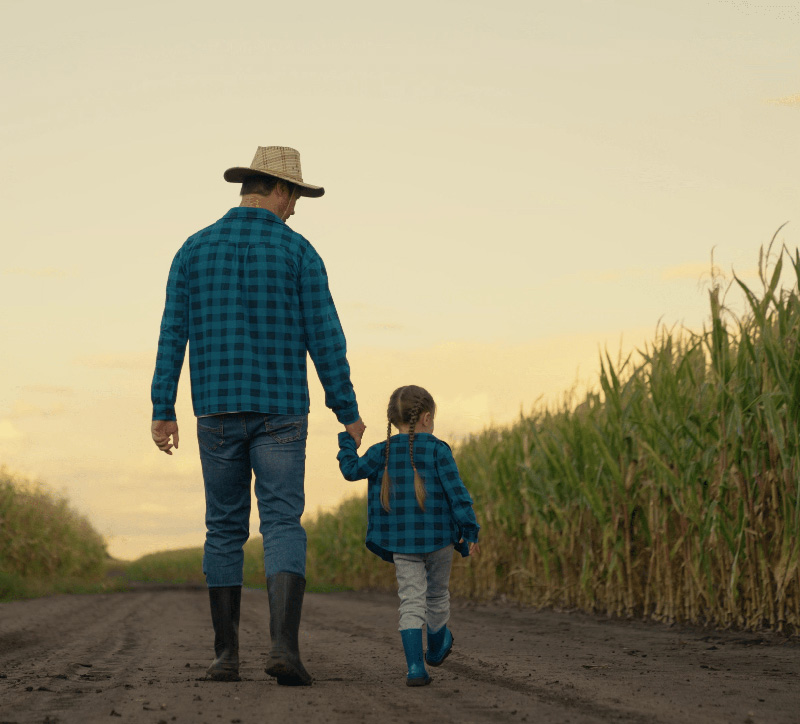
Seeding the next generation.
According to the USDA, 96% of North Carolina farms are family-operated, and the average age of our farmers is 58.4 By instilling optimism for the future of farming in younger generations — and giving them the tools and support to excel — we help turn a calling into a financially stable career, so that family farms can stay in the family.
1 American Farmland Trust, “Farms Under Threat: The State of the States,” accessed November 2022.
2 North Carolina Department of Agriculture, 2012–2016 figures.
3 John Biernbaum, Dept. of Horticulture, Michigan State University, “Organic Matters: Feeding the Soil and Building Soil Quality,” accessed November 2022.
4 U.S. Department of Agriculture, “Got To Be NC!”, July 29, 2021.

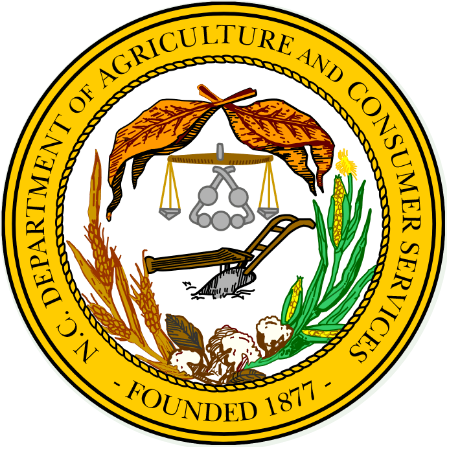
About Us
We are a non-profit public charity established in 2022 with an endowment from the North Carolina legislature. Overseen by the state’s Department of Agriculture and Consumer Services, the Foundation offers immersive internships and accredited training, as well as hands-on learning and farm tours to future and current farmers, college undergraduates, and high school students.
Just as importantly, the Foundation is a labor of love by those with farming in their blood — working to restore the health of our soil, the vitality of our communities, and economic opportunity for agricultural businesses in North Carolina.
Explore our living classroom.
Spread across 750 acres of rolling hills, forest and farmland, working farm Juneberry Ridge serves as our campus. Both richly biodiverse and economically sustainable, the site offers an authentic environment for observing and testing regenerative methods in practice.


Earth and sky, woods and fields, lakes and rivers, the mountain and the sea, are excellent schoolmasters, and teach of us more than we can ever learn from books.
– John Lubbock –
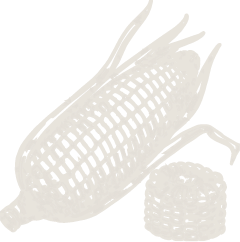
Meet Our Leaders

Danielle Rushing
Education Director
As a committed educator with farming in her blood, Danielle is the ideal leader to develop and launch the Foundation’s ambitious programming. An agriculturalist since childhood — first on her family farm, and later in Future Farmers of America, and the USDA’s 4-H program — she went on to get her B.S. in agricultural education from North Carolina State.
Following a stint as an assistant grower in the horticulture industry, and 5½ years as a high school teacher, she now harnesses her farming expertise to inspire the next generation.

Suzanne Durkee
President
Suzanne is a passionate advocate for healthy, local food. She is also a business professional with a B.A. in anthropology from the University of New Hampshire, and an M.B.A. from Simmons College.
Food has been a driving force in her career, spent working for specialty producers and celebrated chefs. As the CEO of Juneberry Ridge, which hosts the Foundation’s “living classroom,” and now, as our Foundation president, she is deepening her commitment to revitalize the noble profession of farming in North Carolina, along with improving the quality of water, soil and biodiversity of our land.
Advisors
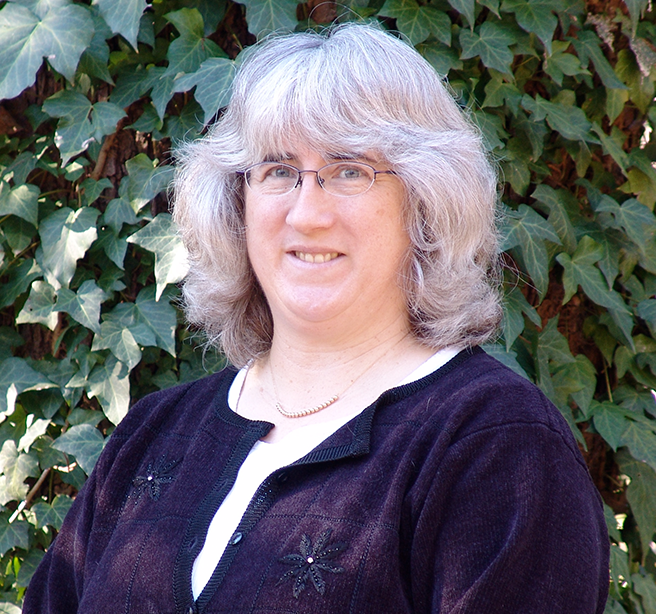
Helen Kraus, Ph.D.
Associate Professor,
North Carolina State University
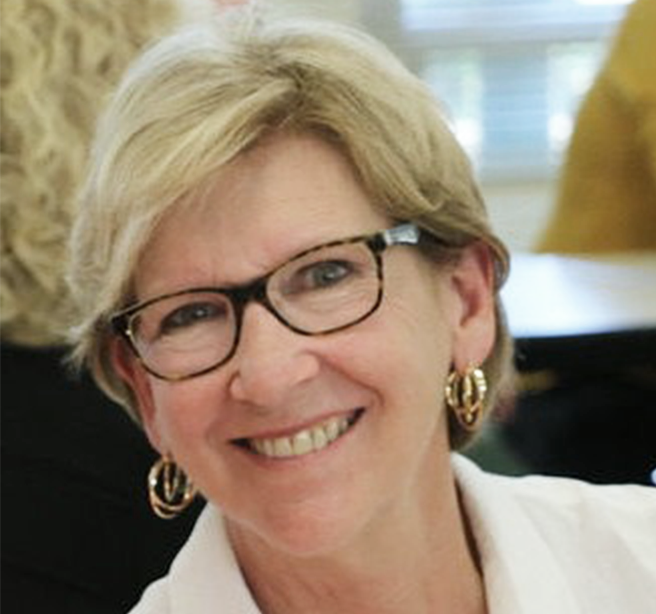
Helen Nance
Executive Director,
Gray Stone Day School

Jeff Morris
Attorney,
Parker Poe
